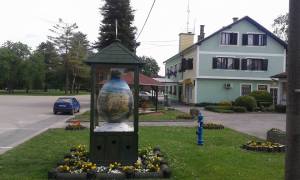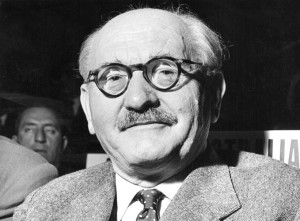In October I had the privilege of attending the WONCA Europe regional conference in Istanbul. The program was rich with a wide variety of topics ranging from the immigrant crisis in Europe to Music therapy. It was great to meet new and old friends and colleagues.
VdGM Pre-conference
For any future and young doctors this is the place to mingle with your international colleagues. The atmosphere is great and the new ides flow. This year the pre-conference consisted of groups discussing difficult patients and research. At the end of which the groups present their ideas. The next pre-conference will be in Copenhagen in June 2016. http://vdgm.woncaeurope.org/content/preconference-2016-copenhagen
Rural practice of the future
One of the workshops I attended was EURIPA’s (http://euripa.woncaeurope.org/) about the future of rural practice. There was mention of all the ways social media is and can be used in the field of rural practice – online consultations with patients and colleagues, issues with patient safety, using/developing secure networks etc. The second half of the workshop was a discussion on what we should keep, what we should discard, and what we should introduce into rural practice. Ideas ranged from not sending young doctors into single practice at their first rural appointment, encouraging the development of more educated staff and community members to assist the health team, establishing local rural doctor networks to meet in person and battle isolation as well as discuss difficult cases, have a regular video link to hospital specialists and better develop that relationship.
Burnout – Keeping the Flame
As one of the facilitators of this workshop I was surprised by the great turn out (100 participants). I think it showed just how important it is to talk about this topic with out colleagues. As an introduction some general information about the prevalence of burnout among doctors was shared. For most of the workshop participants had the opportunity to talk about what had motivated them to be FM/GP, share their feeling about the pressures they face, think about how they identify the strong and week points and tool they can harness to avoid burnout.
Socioeconomic factors and primary care
It was the first time that BRITE presentations where introduced at a WONCA conference. BRITEs are short, 5 min presentations on and issue you face in your practice or experience you wish to share after which their is a group discussion. I think this is a wonderful way to get more people to share their unique experiences and also meet international colleagues interested in the same topic. My BRITE presentation was about how socioeconomic factors can influence the delivery of primary health care. From the political ideology, number of patients per day, salaries and other incentives, brain drain, patient socioeconomic status, immigrants, policy and other issues I face that affect my practice of medicine. It was interesting to hear about what other colleagues from other countries face.
Balint groups
The workshop on Balint groups presented a way for us to share our difficult cases with colleagues and through discussion with them try to find new ideas for solutions.
There where so many great lectures/panels/workshops/research presentations to choose from that it was impossible to attend everything that you were interested in. But WONCA Europe is definitely and event not to be missed – thank you Istanbul! And I’m looking forward to doing it all again in Copenhagen!


